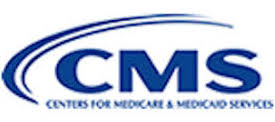CMS Outlines New Medicaid Program Integrity Activities
The federal government will introduce a number of initiatives to combat Medicaid waste, fraud, and abuse in the coming months.
In an article on the Centers for Medicare & Medicaid Services’ blog, CMS administrator Seema Verma outlined her agency’s major Medicaid program integrity efforts of the past year, including:
- Oversight of state Medicaid claiming and program integrity
- Disallowing unallowable claims of federal funding
- Increased audits and oversight
- Data sharing and partnerships
- Education, technical assistance, and collaboration
- Reducing improper payments
 Initiatives to be introduced in the coming months include (as described in the blog post):
Initiatives to be introduced in the coming months include (as described in the blog post):
- A proposed comprehensive update to Medicaid’s fiscal accountability regulations, to increase states’ accountability for supplemental payments. The update includes additional state reporting, clearer financial definitions, and stronger federal guidance to ensure that states use supplemental payments properly.
- A proposed regulation to further strengthen the integrity of the Medicaid eligibility determination process, including enhanced requirements around verification, monitoring changes in beneficiary circumstances, and eligibility redetermination.
- Additional guidance on the Medicaid Managed Care Final Rule from 2016 to further state implementation and compliance with program integrity safeguards, such as reporting overpayments and possible fraud.
- Release of improvements to the Medicaid and CHIP Scorecard—a dashboard of program measures that increases public transparency about the programs’ administration and outcomes. The improvements include two program integrity measures to enhance transparency and continue to provide states with performance measures related to their Medicaid programs. Examples of such program integrity measures may include measures based on state initiation of collaborative investigations with their UPIC, state participation in the HFPP at any level, and performance data derived from improper payment drivers.
- Conduct provider screening on behalf of states for Medicaid-only providers to improve efficiency and coordination across Medicare and Medicaid, reduce state and provider burden, and address one of the biggest sources of error as measured by PERM.
- Medicaid provider education through Targeted Probe and Educate—which identifies providers who have high error rates and educates them on billing requirements—to reduce aberrant billing, as well as education provided through Comparative Billing Reports—which show providers their billing patterns compared to their peers.
- Audit state claiming of federal matching dollars to address areas that have been identified as high-risk by GAO and OIG, as well as other behavior previously found detrimental to the Medicaid program.
Learn more in the CMS blog article “Medicaid Program Integrity: A Shared and Urgent Responsibility.”
 The following is MACPAC’s own summary of the sessions.
The following is MACPAC’s own summary of the sessions.